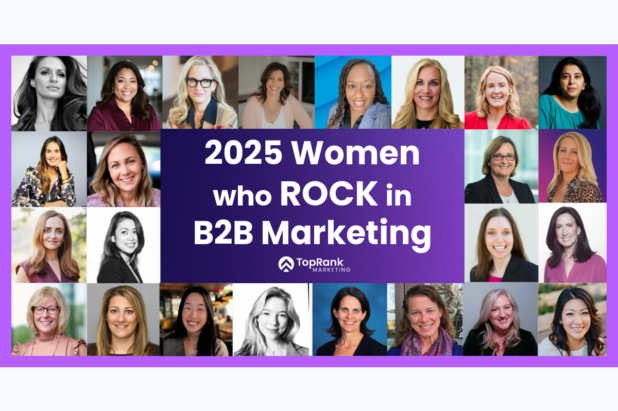
A car engine without a water pump. A baseball team without a shortstop. A guitar without a D string.
All it takes is one missing piece to prevent something from working as it should. Your B2B marketing strategy might excel in certain areas, but a single overlooked element can cause results to stall out.
I’m not talking about tactics here, because those can vary on a case-by-case basis. But there are specific considerations and focal points that ought to exist in pretty much every marketing strategy, and if we fail to account for them we are doing ourselves a disservice.
This isn’t a matter of covering bases or checking boxes. This is about thinking through your marketing approach holistically to set it up for sustainable growth. If any of the following aspects are amiss for your team at a strategic level, I highly recommend addressing them.
Common Gaps in a Modern B2B Marketing Strategy
#1 – You Don’t Have a Sophisticated Content Promotion Plan
I came across two different blog posts in the past couple weeks highlighting common mistakes in content marketing – one from Social Media Today, another from Business 2 Community – and they both mentioned this in some form. There’s a good reason for that: Way too many marketers out there are narrowly focused on content creation, with promotion of said content lagging behind as a distant afterthought.
When we say that a simple checklist doesn’t suffice, this is a prime example. If you want to make a real impact, it’s simply not enough to blast the same blurb and link across all social channels, every time, and call it a day. Your promotion plans should be built in from the beginning. It should align with the purpose and goals of the specific content in question. And it shouldn’t fall into the cyclical trap of sameness that eventually causes audiences to tune out.
There are plenty of creative ways to prop up content and get people’s attention. I really love the assortment of creative promotional tactics shared by our Lane Ellis earlier this year. If you’re feeling limited in ways to gain exposure, TopRank Marketing CEO Lee Odden’s mega-list of 50 content promotion tactics is an essential read. Pick the ones that jibe with what you’re creating, and who you hope to reach.
#2 – You’re Not Getting Maximum Mileage from Your Content
An excellent piece of content deserves more than one fleeting opportunity to be consumed. Yes, promotion is important to maximizing your investment in creation, but so is the extensibility of your creations. Repurposing is a concept that tends to be overly simplified – there ought to be more to it than just republishing a blog post six months later, or turning your podcast episode into a readable transcript.
An excellent piece of content deserves more than one fleeting opportunity to be consumed. @NickNelsonMN Share on XLike promotion, repurposing should be wired into your planning from the get-go. When you conceive a content idea you think will hit home with your audience, think about the different ways you can package and present it. More formats equates to more ways for people to find and experience it. Staggered rollout equates to more opportunities for getting noticed over time.
It’s important to remember that not every eventual hit is an immediate winner.
Read: A Tasty, Strategic Content Marketing Table: ‘Repurposed Content Cobbler’
#3 – You’re Not Focusing on User Intent
Back in the day, SEO was about talking to machines. Now, it’s about talking to humans. Finding high-volume keywords and optimizing for them or bidding for them is not a straightforward recipe for driving results. We should be thinking not just about what people are searching for, but why they’re searching for it.
As Google’s algorithm grows more advanced, rankings are increasingly reflective of searcher motivation as opposed to technical signals. It’s not uncommon that I’ll search for a phrase, and the exact wording won’t appear in any of the headlines or descriptions on the first page. But the results are still relevant, because the engine is elevating results that similar searches have found useful in the past.
I firmly believe that intent should be at the heart of any marketing strategy. It is vital not only to SEO, but also operational efficiency and customer-centricity. Using data, audience research, and intuition, we need to be analytical and predictive about the intent behind each search, each click, each engagement.
I firmly believe that intent should be at the heart of any marketing strategy. It is vital not only to SEO, but also operational efficiency and customer-centricity. @NickNelsonMN Share on XIn her recent “Soapbox” contribution for Search Engine Land, Fractl’s marketing director Amanda Milligan argues that intent should be every marketer’s No. 1 obsession. “Without it, it’s like serving someone steak when they ordered a cheeseburger. Sure, steak is great, but it’s not what they wanted.”
Even metrics are evolving accordingly. For example, Aberdeen’s Olivia Lipkin recently wrote about a new form of lead: the Intent Qualified Opportunity (IQO).
Read: The Key to SEO & Content Marketing Success: Understanding Search Intent
#4 – You’re Not Optimizing
Lee’s 2012 book Optimize! offered a simple premise: Everything is optimizable. The word has long been closely associated with trying to rank in searches (especially around that time), but it’s a practice that should be the lifeblood of any marketing unit seeking reliable growth and results.
Our CEO doesn’t just preach optimization, he lives it. In his book he wrote about how he once considered himself a timid and under-equipped public speaker, but he worked systematically at improving his skills. Now he travels the world delivering major keynotes. He also applied this mindset to his diet and exercise routine, and lost 65 pounds in one year as a result.
At its core, optimizing is a pretty basic and uncomplicated endeavor. It’s about experimenting with different things, measuring how audiences respond to them, then proceeding with an emphasis on what’s working and a de-emphasis on what is not. You can apply this to almost every component of your strategy. Don’t stop at A/B testing ads.
#5 – You’re Not Thinking Your Goals and Measurement Through
The term KPI has started to bug me lately. Not because of what it is, but what it often seems to represent: static and inflexible goal-setting. By definition, Key Performance Indicators are vital to ongoing measurement and optimization, but it’s a mistake to get too caught up in one single metric or to use it as a blanket across campaigns and initiatives.
Goals should always be laid out from the start, and they should always be tailored to what you’re trying to achieve with any given initiative. For example, I rather like the way LinkedIn’s* revamped interface for advertisers promotes this type of process; called objective-based advertising, the new experience compels users to select an objective and desired outcome from the outset, then places them at the center of campaign creation.
Eliminate Holes to Make Your Strategy Whole
If your marketing strategy isn’t quite yielding the results you desire, the fix might be relatively minor. In many cases it’s just one or two missing or insufficient elements that greatly affect overall performance, like absent cogs in a clock’s gearwork.
Taking a step back and looking at the totality of your strategy – especially in terms of how the five functions above are working in unison – can make all the difference. Sometimes, it helps to gain an outside perspective or expert diagnostic (I happen to know of one agency that specializes in such assessments).
Don’t let unaddressed holes diminish your whole marketing strategy. Once you’re hitting every necessary note, you’ll know it by the harmonious result.
Another key aspect of a B2B marketing strategy? Documenting it! If you’re wondering where to start, check out our three-point checklist.
* Disclosure: LinkedIn is a client of TopRank Marketing.



